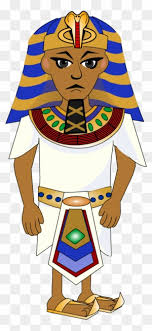/Blog/Blog-With-Us/SHOWERS/Zechariah-Chapter-14-Part-6/?link=1&fldKeywords=&fldAuthor=&fldTopic=0
Zechariah 14:17 – And if any of the families of the earth do not go up to Jerusalem to worship the King, the Lord of hosts, there will be no rain on them.
Our last post was a review of the Feast of Booths, also called the Feast of Tabernacles or the Feast of Ingathering. I hope you took the time last week to acknowledge the blessings of the Lord in your own life and to offer him praise and worship. 
In this week’s post, we find that the nations who refuse to send representatives to Jerusalem to worship the Lord during the Festival of Booths as commanded, will suffer punishment. Specifically, we are told the Lord will withhold rain from these nations.
As we seek to understand this prophesy, keep in mind that Zechariah is using Old Testament images (which is all he had) to try and convey the truths of the New Testament gospel dispensation. In other words, he is describing the future blessings and judgments of God using terms and ideas that were familiar to the Jews of his day. In order for us to understand them, we need to filter them through our Old Testament knowledge.
The prophesy found in Zechariah 14 speaks of a time (that day) when the worship of God is virtually universal. However, it also indicates that there will still be some people who choose to live in rebellion against God. These people are generally split into three groups:
Group #1 are people who stubbornly reject salvation; they steadfastly refuse to acknowledge Jesus as Lord, Savior and King (Mar 4:3-4).
Group #2 are people who initially pledged loyalty to Christ but then turned aside from following him (Mark 4:5-6). They will worship and serve all manner of false idols/gods or they will attempt to mix the worship of Jehovah with other gods/religions.
Group #3 are people who accept Christ but allow the things of this world to ‘choke out’ their service to God (Mark 4:7). This group also includes people who are lazy and ‘cold’ in their relationship with God:
Matthew 24:12 - And because iniquity shall abound, the love of many shall grow cold.
It is interesting to note that ‘there is nothing new under the sun’. In other words, these are the same three groups revealed in the parable of the Sower (Mark 4, Luke 8, Matthew 13). They have always existed in the world and they will continue to do so, even on ‘that day’.
In this verse, God makes it very plain that his blessings are reserved for those who love and serve him. Therefore, regardless of the root cause of their rejection or disobedience to Christ, all rebels will suffer the same curse - God will withhold rain from the people or nations who refuse to worship him at the yearly Feast of Booths.
Literal Interpretation:
Rain was (and is) God’s most essential temporal gift for the wellbeing of his people. Plants, crops, animals and livestock all flourish when water is readily available. In addition, when clean water (and food) is plentiful, people multiply more quickly and live longer, healthier lives.
As you already know, the timing of rainfall is critical to a bountiful harvest of crops. Cultivated plants/crops require an abundance of rain just after planting to ensure that the seeds sprout and grow. This is often referred to as the ‘former rain’.
Another burst of moisture is needed as the crops produce the actual grain or fruit. This is often referred to as the ‘latter rain’. God has promised to give the perfect amount of rainfall to his people when they live in obedience to him:
Deuteronomy 11:13-14 – And if you [Israel/God’s people] will indeed obey my commandments that I command you today, to love the Lord your God, and to serve him with all your heart and with all your soul, he will give the rain for your land in its season, the early rain and the later rain, that you may gather in your grain and your wine and your oil.
As we would expect, those who obey God’s commands live under his blessings. Those who rebel or disobey live outside of God’s mercy and blessing; they place themselves under a curse.
In the literal interpretation, God would literally prevent rain from falling in the nations/lands of those who refuse his salvation or turn aside from worshiping him:
Deuteronomy 11:16-17 – Take care lest your heart be deceived, and you turn aside and serve other gods and worship them; then the anger of the Lord will be kindled against you, and he will shut up the heavens, so that there will be no rain, and the land will yield no fruit, and you will perish quickly off the good land that the Lord is giving you.
Anytime we find drought occurring in the world, we also find crop failures which result in famine or scarcity, pestilence, death of livestock and widespread distress. All these factors result in decreased birth rates in animals and people. The final outcome is that both the people and their land will become barren.
In modern day terms, we could say that a prolonged drought will occur in the nations who refuse to repent and accept the salvation of God. These nations will then experience all the evil outcomes associated with a severe lack of water.
Spiritual Interpretation:
As we studied in one of our prior posts, water and rain are often used in scripture to describe spiritual blessings and the work of Holy Spirit.
Hosea 6:3 - …let us press on to know the Lord; his going out is sure as the dawn; he will come to us as the showers, as the spring rains that water the earth.
Isaiah 45:8 – Shower, O heavens, from above, and let the clouds rain down righteousness; let the earth open, that salvation and righteousness may bear fruit; let the earth cause them both to sprout; I the Lord have created it.
John 7:38-39 – Whoever believes in me [Jesus], as the scripture has said, ‘Out of his heart will flow rivers of living water.’ Now this he said about the Spirit, whom those who believed in him were yet to receive, for as yet the Spirit had not been given, because Jesus was not yet glorified.
The spiritual interpretation of this verse maintains that any nation who refuses to send representatives to Jerusalem once a year to worship at the Feast of Booths, has placed itself under a spiritual curse/drought in which the work of Holy Spirit will essentially dry up.
This would be a spiritually deadly curse, because Holy Spirit is the person who is responsible for our spiritual growth and blessing.
- He convicts sinners and leads them to salvation.
- He quickens the word of God to our hearts and minds so we can understand it.
- He aids the believer in changing his or her life to confirm to the image of Christ.
- He assists us in growing spiritual fruit (love, joy, peace, meekness, etc – see Galatians 6) in our lives.
- He pours spiritual gifts upon the church.
- He assists us in all of our spiritual labor.
- He comforts us in times of grief.
- He illuminates our path. He is our spiritual guide for our earthly journey.
Without all of the benefits and gifts of Holy Spirit, the churches within these rebellious nations would soon wither and die.
As bad as that is, more spiritual death would follow. Keep in mind that it is the job (privilege) of the church to sow the gospel into the hearts and minds of the lost. Once that is done, Holy Spirit waters or quickens that word, which sprouts/grows and eventually that soul is ‘harvested’ or added to the kingdom of heaven. Without the water of Holy Spirit, there would be no spiritual harvest.
In modern day terms, we could say the nations (or people groups) who refuse to send representatives to Jerusalem for the annual Feast of Booths are living in disobedience to God’s commands. This disobedience will result in a curse – the curtailment of the work of Holy Spirit in their lives.
This curse will eventually result in spiritual death for individual believers. It will also bring about a spiritual ‘crop failure’ – the lost of their generation will remain under the bondage of sin and eternal death.
Zechariah 14:18-19 – And if the family of Egypt does not go up and present themselves, then on them there shall be no rain; there shall be the plague with which the Lord afflicts the nations that do not go up to keep the Feast of Booths. This shall be the punishment to Egypt and the punishment to all the nations that do not go up to keep the Feast of Booths.
Why is the nation of Egypt specifically mentioned here? In order to find the answer, we must filter this statement through our knowledge of the Old Testament.
First, as you are probably aware, Egypt is the long-standing enemy of Israel. Israel represents the children of God and the kingdom of heaven on earth. Jesus rules this kingdom and he gives salvation (freedom from sin and its penalties) to all those who are a part of his kingdom. Citizens of his kingdom receive life and blessing.
Egypt is symbolic of the kingdom of darkness. Satan rules this kingdom and his goal is to keep as many people in bondage to sin as he can. Those who are part of his kingdom can expect spiritual death and destruction, which are the natural outcomes of sin.
So, in this verse, Egypt may be mentioned as the standard representation of satan and rebellion against God.
With that in mind, the meaning of the verse is this: Despite God’s revelation of himself to the world and the outpouring of his Spirit, there will still be people who choose to reject his offer of salvation. Those who chose to embrace satan as lord place themselves under the curse of sin, which in this case is a literal or spiritual drought. This is essentially a reiteration of the prior verse.
Now let’s look at this verse from another angle.
When Israel entered the Promised Land, they were wholly dependent upon the former and latter rains to water their crops and fill their wells. The timing of these rains was just as critical as the rains themselves. In other words, their survival depended upon these life-giving rains and they knew it. They acknowledged a direct correlation between the God-given rain and life.
However, this was not the case for ancient Egypt. The Egyptians relied on the Nile River to supply water for the nation and to irrigate their crops. The river flooded and receded, but water was always available. Of course, we know that it was the God-given rains which filled the lakes and streams that flowed into the Nile, but in their eyes, there was no direct correlation between rain and life.
Their point of view hindered them from acknowledging Jehovah as the only true God of the universe. Instead, they simply considered him another god who must be served along with Ra, Baal and all the other pagan deities they served.
In a spiritual sense, we might draw the parallel that there will be people (Egyptians) who go through the motions of worshiping God (religion), without having a true relationship with him (salvation through the work of Holy Spirit). Rather than clinging to the pure word of God (the rain/work of Holy Spirit), they simply adhere to the traditions of men (the Nile water). 
Because they exist without the pure gospel of Christ, they will eventually experience the same spiritual drought/famine of those in open rebellion against God. So we see that through the prophet Zechariah, God is warning the coming generations against false religious traditions.
Another warning could also be drawn from this verse – each one of us must recognize that we stand by faith alone (the rain of Holy Spirit). If we try to stand in our own power or capabilities (the Nile water), we will fall:
1 Corinthians 10:12 -Therefore let him that thinks he stands take heed lest he fall.
One way to keep ourselves on the right track is to continually recognize the gifts of God and offer him praise/worship for these blessings. These actions are symbolized by mandatory participation in the feast of booths.
This brings up a very important point: God does not command us to worship him because he is insecure and needs our affirmation, or because he is having a ‘bad day’ or because he is a narcissist. He commands us to worship him because it results in our own good!
For instance, praise and worship remind us of all the amazing things he has done for us, which in turn makes us thankful and keeps us from the sins of complaining, doubt and fear.
Praise and worship remind us just how big, how perfect and how powerful God is, which in turn builds our faith.
Praise and worship usher us into the presence of God, which is where miracles and answers are found.
We could go on and on about the benefits we receive from praise and worship, but I have a better idea – why not take a week or so to make praise and worship a focus of your life and discover the benefits yourself!
Zechariah 14:20 – And on that day there shall be inscribed on the bells of the horses, “Holy to the Lord”. And the pots in the house of the Lord shall be as the bowls before the altar.
Once again, we find Zechariah speaking in terms/imagery drawn from the ritual customs of the law, which was the only spiritual revelation he had. Let’s examine those rites and see how they apply to the gospel dispensation.
On that day: ‘That day’ refers to the time when the nations of the world are converted to Christianity, after an unprecedented move of Holy Spirit, as discussed earlier in this chapter of Zechariah (verses 8 and 16).
There shall be inscribed on the bells of the horses: Before and during the time of Zechariah, bells were hung on the bridle or collar of horses (and camels) for a number of reasons. For example, when caravans traversed desert, it was not uncommon for the members of the group to get separated, because there was no firm beaten-down track. Bells were attached to the animals to signal their positions so the caravan stayed together.
Many bible commentators point out that horses enjoy the tinkling sound of certain bells; the noise seems to inspire them to keep working/moving.
Other types of bells were used for training war horses, which is the context that applies to our study. Bells were hung on the bridles of the animals to see how they would react to sudden raucous noises.
Apparently, some animals become nervous when hearing these sounds, and tend to bolt in fear. Others can bear the noise (and thus the tumult of war), so they can be trained to bear riders in the heat and confusion of battle. 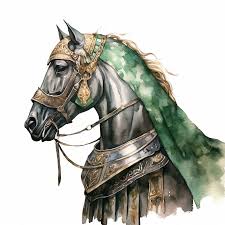
It is commonly believed that Zechariah was referencing war horses in this verse.
‘Holy to the Lord’: Zechariah tells us that this phrase was inscribed on the bells of the war horses. The phrase is probably familiar to you; it was inscribed on the miter or head dress of the high priest during the era of the law:
Exodus 39:30-31 –They made the plate of the holy crown of pure gold, and wrote on it an inscription, like the engraving of a signet, “Holy to the Lord.” And they tied to it a cord of blue to fasten it on the turban above, as the Lord had commanded Moses.
In Exodus 28:35-38 we are told that the turban or miter always had to be upon the head of the high priest as he ministered before the Lord, so he could be accepted in God’s sight, and thus perform the work he was required to do. (We discussed the significance of this phrase when we studied Zechariah 3:1-8, please see those posts for review).
So far, we see that the war horses are considered ‘Holy to the Lord’, just as the high priest under the law was ‘Holy to the Lord’. What exactly does that mean? Not surprisingly, different answers have been given.
One explanation says that the gospel is a system of holiness; it produces holiness in those who believe. On that day (and even now to some degree), this holiness will be evident in everything a Christian says and does. This includes his labor/vocation, his entertainment, his conversation, his relationships, his decisions, etc.
Proponents of this interpretation point to the words of Paul:
1 Corinthians 10:31 - Whether therefore you eat, or drink, or whatsoever you do, do all to the glory of God.
Furthermore, because the Christian is consecrated to God, everything that he owns, uses or does is considered consecrated as well. In this interpretation, the horses represent labor, vocation and possessions.
In modern terms, we might say that since Christians are holy, everything they own (cars, homes, artwork, etc) as well as their jobs (home maker, teacher, electrician, etc) and anything else they labor over (hobbies, sports, etc) are all holy before the Lord as well.
One additional point should be made regarding this theory. Those who hold this view are not implying that sacred things should be lowered to the same level as common things. They believe that ordinary things become sacred (set apart for God) when they are used or possessed by holy men and women of God.
A second similar interpretation says that ever since the coming of the Messiah and the establishment of the church, all Christians are now kings and priests before God:
Revelation 5:10 - And hast made us unto our God kings and priests: and we shall reign on the earth.
(See also Revelation 1:6, I Peter 2:9). Since we are now all spiritual priests before God, then even the most common things we own are sacred before the Lord, not merely the things which were sanctified under the Old Testament law.
A third interpretation maintains that because salvation has spread across the world and Christ rules in the hearts of most people, there will be universal peace. Therefore, the bells of the horses (which represent anything used in war) should be re-purposed or converted to a sacred use.
Those who hold this view see a similarity to re-purposing spears and swords:
Isaiah 2:4 - And he [God] shall judge between the nations, and shall rebuke many people: and they shall beat their swords into plowshares, and their spears into pruning hooks: nation shall not lift up sword against nation, neither shall they learn war any more.
And the pots in the house of the Lord shall be as the bowls before the altar: The temple had a large number of different vessels in it. There were pots, shovels, basins, spoons, plates, bowls, wick trimmers, flasks and forks, just to name a few. Some of these utensils were made of bronze, some of silver and some of gold (II Kings 25:14-15).
Under the temple era (the Old Testament covenant) some of these utensils were used for sacred purposes. For instance, the bowls of sprinkling which caught the blood of the sin offerings were considered sacred. Other items, like the shovels and receptacles which collected the ashes from the brazen altar, were not considered sacred.
However, on ‘that day’ which occurs during the gospel dispensation, all utensils within the house of the Lord are considered sacred – the shovel used in cleaning the altar would be just as sacred as the bowls of sprinkling.
Now ask yourself this question: What is the New Covenant equivalent of an Old Covenant vessel in the house of the Lord?
Answer: People/Christians are the vessels which serve in the church/house of the Lord during the gospel dispensation:
Romans 9:23-24 - And that he might make known the riches of his glory on the vessels of mercy, which he had before prepared unto glory, even us, whom he has called, not of the Jews only, but also of the Gentiles?
Under the New Covenant, you and I are the vessels which are used to carry the gospel message to the world. We all have different jobs or ministries within the church, but we are all working together for the glory of God.
Think of it this way - in order for the temple to function properly, all of the different vessels and utensils had to be present. In order for the church to function properly, all Christians must be present and performing the function God has appointed for them:
Romans 12:4-6 – For as in one body we have many members, and the members do not all have the same function, so we, though many, are one body in Christ, and individually members one of another. Having gifts that differ according to the grace given to us, let us use them…
So, in modern terms, we could say that all Christians are priests/servants of God; all of us carry the gospel message to the world. Each of us has an individual task to perform as assigned by God, but we are all the body of Christ.
Here is something else to consider: Currently, not everyone in the church is a true believer in Christ (sad but true).
Thus, Zechariah could be using Old Testament language to say that ‘on that day’ there would no longer be any hypocrites or unbelievers in the church; everyone would be a true Christian or vessel of honor in the sight of God.
Since that is the case, then all of God’s people will direct their thoughts and actions to the glory of God. The logical outcome would be that the holiness of the church on ‘that day’ would exceed the holiness found there in the former times (the pots shall be as the bowls before the altar).
In addition, Zechariah is saying that on that day there would no longer be a distinction between Jews and Gentiles; all will be considered sons and daughters of God.
Zechariah 14:21 - And every pot in Jerusalem and Judah shall be holy to the Lord of hosts, so that all who sacrifice may come and take of them and boil the meat of the sacrifice in them. And there shall no longer be a trader in the house of the Lord of hosts on that day.
This verse speaks of boiling the meat of the sacrifice. This is a reference to the Old Testament peace or freewill offering. When a peace offering was brought to the temple, the right shoulder and the breast were given to the priest, the fat was burnt upon the altar, the blood was poured out at the bottom of the altar and the remainder of the flesh was returned to the person who made the offering. This meat was often boiled in a pot at the temple.
So, the situation being described in this verse is this: When the fulfillment of this prophesy occurs, there will be such a great number of sacrifices/offerings that the number of pots in the temple won’t be sufficient to process or cook them all. But that will be okay, because every pot in the city of Jerusalem and in the country of Judah will be sanctified and devoted to holy use, so they too can be used to process the sacrifices.
What is the equivalent of a freewill sacrifice in the age of grace?
Psalms 54:6 – I will freely sacrifice unto thee: I will praise thy name, O Lord; for it is good.
Hebrews 13:15 – By him [Jesus] therefore let us offer the sacrifice of praise to God continually, that is, the fruit of our lips giving thanks to his name.
In the dispensation of grace, freewill offerings are synonymous with praise, worship and prayer, which are always found in the house of God.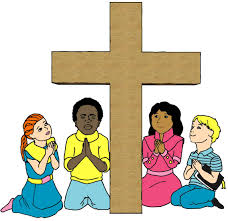
With this in mind, the modern-day interpretation is that on ‘that day’ the number of worshipers will be so great that true praise, worship, prayer and fellowship with God cannot be contained within the church walls. People will worship literally anywhere and everywhere, and at all times.
This verse goes on to say that there would no longer be a ‘trader’ in the house of the Lord. Your translation may say ‘merchant’ or ‘Canaanite’ (a non-Jewish person; by default an unbeliever).
Scripture tells us that even during the time of Christ there were dishonest merchants/traders who were in the temple buying and selling oxen, sheep, doves, etc which were used for sacrifices.
Jesus declared that these men turned the house of God into a ‘den of thieves’. In his fierce anger, he made a cord of whips and drove these traders out of the temple (Matthew 21:12-13, Luke 19:45-46, etc).
Under the dispensation of grace, these traders or unbelievers are false teachers who make a living by deceiving the very people they claim to be helping! But during the time this prophesy is fulfilled, there will no longer be any false teachers, hypocrites or impure/ungodly persons in the church of Christ.
Let me offer you some encouragement:
In today’s post we noted that God commanded the Gentile nations to attend the yearly Feast of Booths. Part of that celebration included freewill offerings/sacrifices to the Lord.
In our generation, those freewill offerings/sacrifices are equivalent to praise, worship and prayer. Do you know why these things are considered sacrifices or offerings? It’s because they cost you something. That something could be time, effort, sleep, work, recreation, etc.
But let me assure you, it is well worth the price! When you begin to engage with God through prayer and worship, you are spiritually, mentally, emotionally and physically renewed.
So, if you find yourself in a place where you have neglected these important tasks, I want to encourage you to take them up again – today! You’ll be glad you did!
Let me offer you some relief and some strength:
In today’s post the nations who obey the commands of the Lord (attend the yearly festival) are blessed. Those who choose to disobey remove themselves from under God’s umbrella of protection/blessing and consequently, they will suffer for it. This principle can be found throughout the scriptures, in both the old and new covenants.
Each one of us would be wise to stop and take an honest look at our own lives. Are there areas in which we have chosen to disobey the known commands of God?
Here are a few examples:
Are we engaging in sexual sins and justifying the practice because it is common in our culture?
Scripture commands the church to assemble on a regular basis (Hebrews 10:25) for a number of reasons (to encourage each other, to prophesy, to lay hands on the sick, etc). But many people who stopped attending church during the Covid outbreak have never returned.
Jesus does not suggest that we forgive others, he commands it. Yet, many Christians refuse to follow his directive.
Let’s be honest for a minute. If you are living in disobedience in some area of your life, it will likely be uncomfortable or even painful to make a change. But in the end, it will always be worth it.
God’s commands are not there to ‘spoil our fun’, they are in place to give us freedom, joy, and prosperity. We will live our best lives by being obedient to all he commands.
Here is something to keep in mind. God would never command us to do the impossible (only he can do that). This means that if you truly desire to change and place yourself in obedience to his commands, he will make it possible for you to do so. Holy Spirit will walk with you, guide you, comfort you and empower you as you go through the process of cleaning up your mess.
Other Christians in your local church will also be there to help you. If you want some relief from bondage and strength to continue your spiritual walk, place yourself in obedience to God today.
Well, we have reached the end of our study of Zechariah. I hope you found it to be beneficial as well as interesting.
Way back in our introduction to this prophetical book, we clearly stated that we would not understand every single facet of this book - and we were right! Nevertheless, I believe our study has been worthwhile. Speaking from a personal perspective, I know more about this book now that I ever did in the past. I hope that is the case for you too.
We will be taking a break for a few weeks, in order to gear up for our next study. I hope you will come back and join us!

 That was good news for the Gentiles. They could leave their heathen ways behind and be reconciled to God through Christ Jesus, without having to become converts to Judaism!
That was good news for the Gentiles. They could leave their heathen ways behind and be reconciled to God through Christ Jesus, without having to become converts to Judaism! 






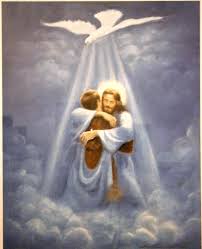 (I Peter 5:4, Revelation 3:11) for our service to him on earth. He will welcome us into his kingdom with love and open arms; we have absolutely no reason to fear our meeting with him. Hopefully, we have been diligent servants who will hear him say, ‘Well done good and faithful servant’.
(I Peter 5:4, Revelation 3:11) for our service to him on earth. He will welcome us into his kingdom with love and open arms; we have absolutely no reason to fear our meeting with him. Hopefully, we have been diligent servants who will hear him say, ‘Well done good and faithful servant’. 












 appointed by God. Here are the highlights:
appointed by God. Here are the highlights: Therefore, we might say that they are merely reaping what they have sown; the sin (lust of the eyes) they chose to embrace brought about the disease that is now manifesting in their physical eyes.
Therefore, we might say that they are merely reaping what they have sown; the sin (lust of the eyes) they chose to embrace brought about the disease that is now manifesting in their physical eyes. 





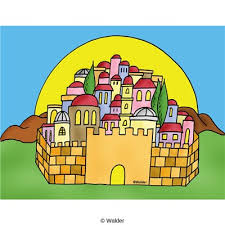 six miles from Jerusalem.
six miles from Jerusalem. 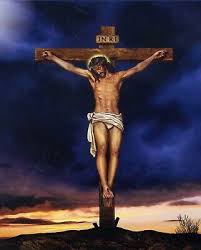
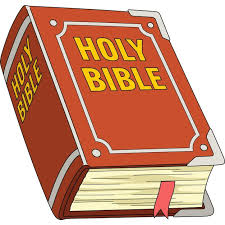 cultivating our hearts so we can receive new revelations from him. He accomplishes this through the truth of the scriptures.
cultivating our hearts so we can receive new revelations from him. He accomplishes this through the truth of the scriptures.
 right there with you, living in your heart and leading you to victory. Once you die, you will go to heaven to dwell with Christ forever. In either case, there is no reason to fear if your life is hidden in Christ.
right there with you, living in your heart and leading you to victory. Once you die, you will go to heaven to dwell with Christ forever. In either case, there is no reason to fear if your life is hidden in Christ. 
 The exact day on which these events occur will be a unique day – a day that is unmatched or unparalleled in all of history; there will be no other day like it. This day is peculiar because it is neither day nor night.
The exact day on which these events occur will be a unique day – a day that is unmatched or unparalleled in all of history; there will be no other day like it. This day is peculiar because it is neither day nor night.  to study prophesy. No matter how much we know, many questions remain unanswered. Furthermore, interpretations can vary widely, depending on the manner in which God chooses to fulfill his word (literal or spiritual) and our understanding of his plans/purposes.
to study prophesy. No matter how much we know, many questions remain unanswered. Furthermore, interpretations can vary widely, depending on the manner in which God chooses to fulfill his word (literal or spiritual) and our understanding of his plans/purposes. 

